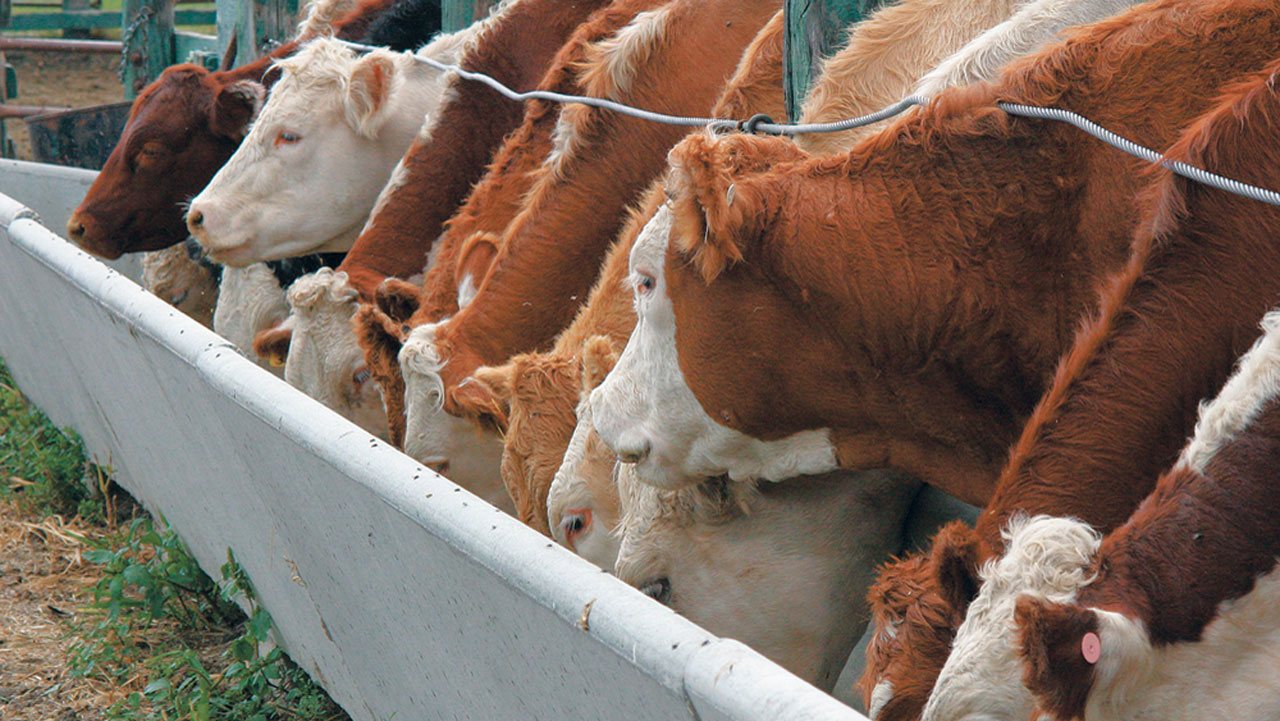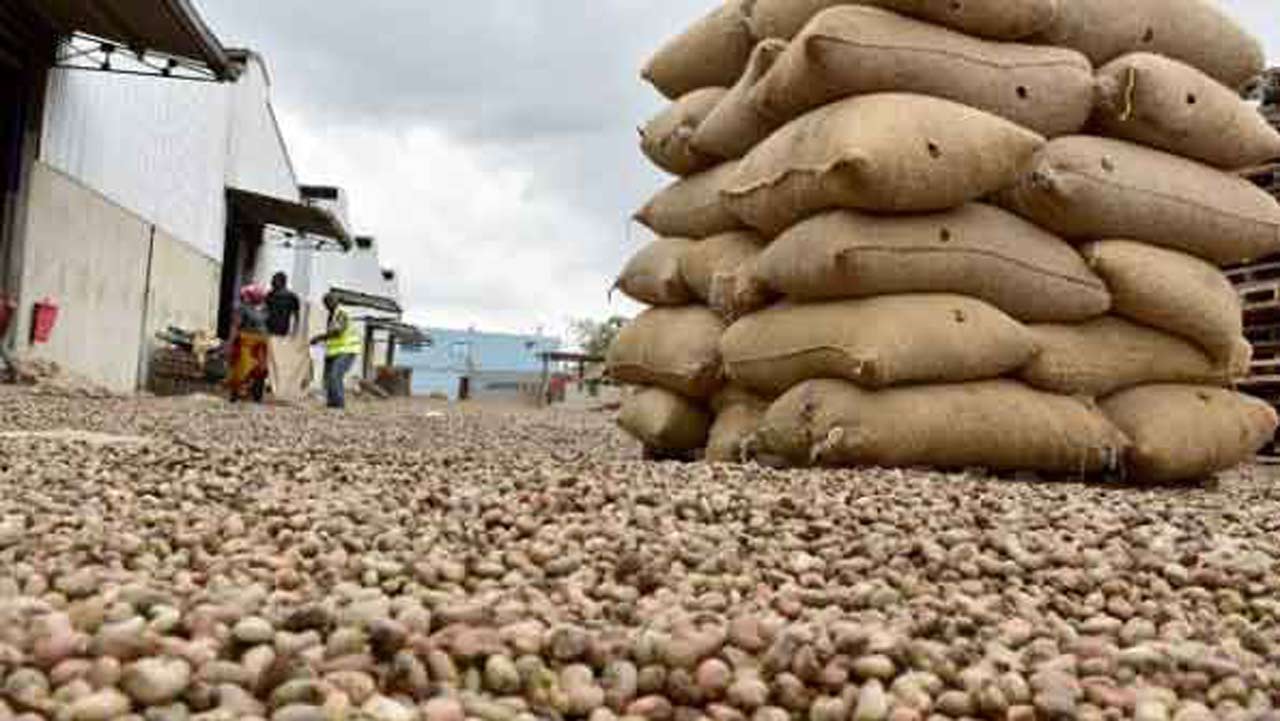
• 40% Of Crops Lost To Plant Pests, Diseases Yearly—FAO
• Contributes To Economic Losses In Sub-Saharan Africa—IITA
• UN Declares 2020 As International Year Of Plant Health
The United Nations General Assembly has declared year 2020 as the International Year of Plant Health (IYPH). This is aimed at raising global awareness on how protecting plant health can help end hunger, reduce poverty, protect the environment and boost economic development.
This has not only showed the importance attached to plants and food crops, but the urgent need to start conversations that will help promote understanding and awareness about the importance of plant health.Plant or crops provide 80 per cent of the food humans eat, plant also provide feeds for livestock, more importantly, plants provide the oxygen humans breath. However, the major threat plants face now is pest.
The Food and Agricultural Organisation (FAO) estimates that up to 40 percent of food crops are lost to plant pests and diseases yearly. These leave millions of people without enough food to eat and seriously damaging agriculture, which is the primary source of income for rural communities.
The Director of Plant Production & Health Management, International Institute of Tropical Agriculture (IITA), Dr. David Chikoye, put the losses incurred yearly as a result of the plant pests and diseases, across Sub-Saharan Africa, at over $200b considered as a significant amount of money.
One of the factors given by experts for the persistent spread of pests and diseases to new areas is the expanding international trade and travel, which increases the risk. Considering the huge economic losses incurred as a result of the challenge, coupled with the health challenges posed by continuous consumption of unhealthy plants, there is renewed vigour by stakeholders to key into the IYPH, by raising awareness and continuous efforts to protect plant health.
So far, IITA appears to have taken the bull by the horn. The institute has undertaken researches with partners on plant health to ensure food and nutritional security and meet some of the Sustainable Development Goals (SDGs).Specifically, the institute’s focus is on Fall Armyworm (FAW), and Aflatoxin, in which it has recorded breakthroughs, which have drastically reduced economic losses of farmers.
FAW (Spodoptera frugiperda) is an insect pest of more than 80 plant species, causing damage to economically important cultivated cereals such as maize, rice, sorghum, and also to vegetable crops and cotton. It is native to tropical and subtropical regions. It is the larval stage of the insect that causes the damage. FAW reproduces at a rate of several generations per year, and the moth can fly up to 100 km per night. It is currently in 31 African countries.
Aflatoxins are poisonous carcinogens, produced by certain molds (Aspergillus flavus and Aspergillus parasiticus) which grow in soil, decaying vegetation, hay, and grains. They are regularly found in improperly stored staple commodities such as cassava, chili peppers, corn, cottonseed, millet, peanuts, rice, sesame seeds, sorghum, sunflower seeds, tree nuts, wheat, and a variety of spices. When contaminated food is processed, aflatoxins enter the general food supply where they have been found in both pet and human foods, as well as in feedstocks for agricultural animals.
Contaminated animals feed can pass aflatoxin transformation products into eggs, milk products, and meat. For example, contaminated poultry feed is suspected in the findings of high percentages of samples of aflatoxin contaminated chicken meat and eggs in the Indian subcontinent.
Children are particularly affected by aflatoxin exposure, which is associated with stunted growth, delayed development, liver damage and liver cancer, among others.Aflatoxin contaminates up to 65 per cent of maize and groundnut crops. More than 95 per cent of children under five in some countries have aflatoxin in their body signifying high exposure. It affects many other crops such as melon seeds and rice.
Support to Agricultural Research for Development of Strategic Crops in Africa (SARD-SC) Maize Commodity Specialist, Sam Ajala, who took journalists on field tour of the IITA experimental farms said the FAW was first noticed in Nigeria in 2016 but prevalent in 2017.He said: “The pests feed on the leaves, reducing the photosynthesis area. When the leaves are fully opened, they go into the stem, eat up the maize and cause economic losses. After much research, it was discovered that the specie of the pests are similar to the ones in Florida, which means it must have been brought into the country from there.
“Pesticides have been tested on the pests and they are not really working. It was discovered that if you are using a particular pesticide for a long time, the pests will resist it and it will not work again. Currently, we have succeeded in developing resistant maize breed that tolerates the pest.”
To combat the aflatoxin contamination, IITA and partners have developed an all-natural product, Aflasafe, which drastically reduces aflatoxin in crops. Aflasafe contains native non-toxic strains of Aspergillus flavus that out-compete toxin-producing ones when applied in the field.
When it is correctly applied and all facilitative conditions are met, farmers in several countries consistently achieve 80 to 100 per cent reduction in aflatoxin contamination in their maize and groundnut fields.One application of Aflasafe every cropping season, provides protection from aflatoxin in a cumulative manner, along with attendant health benefits.
A Plant Pathologist/Bacteriologist and consultant in IITA, Ibadan, Oyo State, Dr. Maria Ayodele said the major objective of the IYPH is to raise global awareness on how promoting plant health could help end hunger, reduce poverty, among others, explained that food security could only exist when all people at all times have access to sufficient, safe and nutritious food to meet their dietary needs and food for an active, healthy life.She said low crop yields were common in many developing countries and improved productivity was vital to reducing poverty and increasing food security.
According to her, the causes of low productivity are complex, which includes the often-neglected issue of the importance of plant health in productivity and hence, in food security.“One major aspect of plant health, concerns crop losses due to pest, constraints, estimates of losses of 30 to 40 per cent of crop production annually are common.
“Any future solution regarding improved global food security must address these losses. That means improving plant health of what we are currently producing,” she said.Ayodele further said that IITA had been involved and had good reputation on plant health management by taking measures, which included bio-control of cassava mealy bug, bio-pesticides, integrated stigma control and aflatoxin management.






